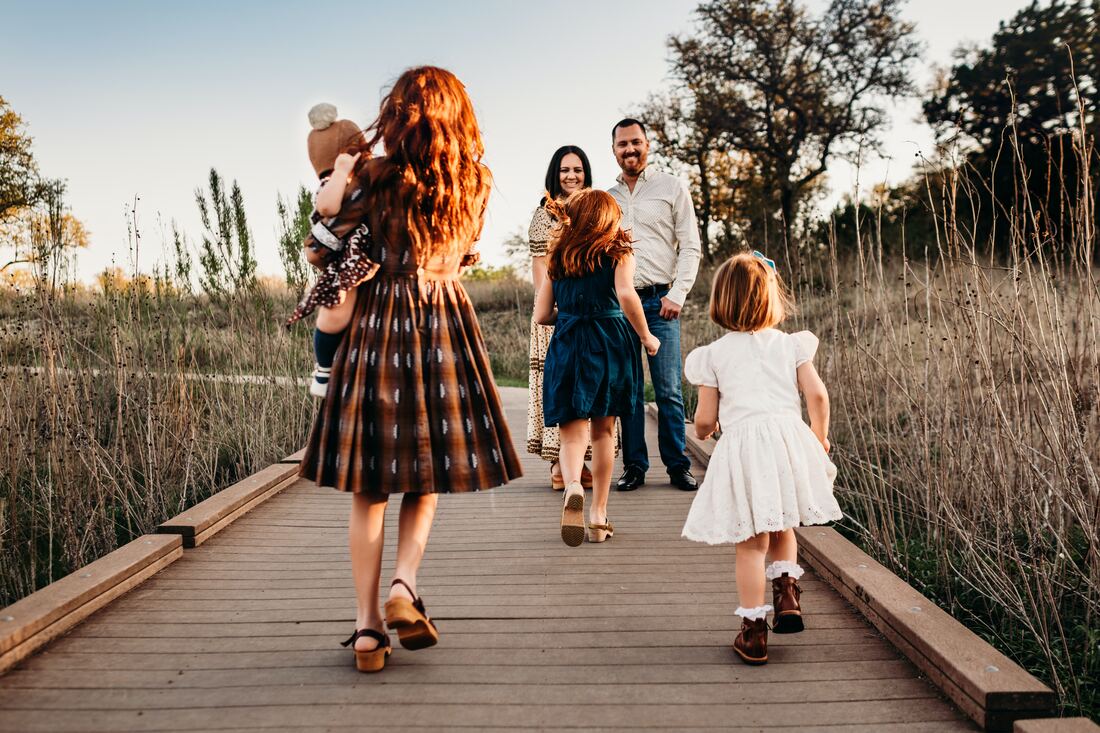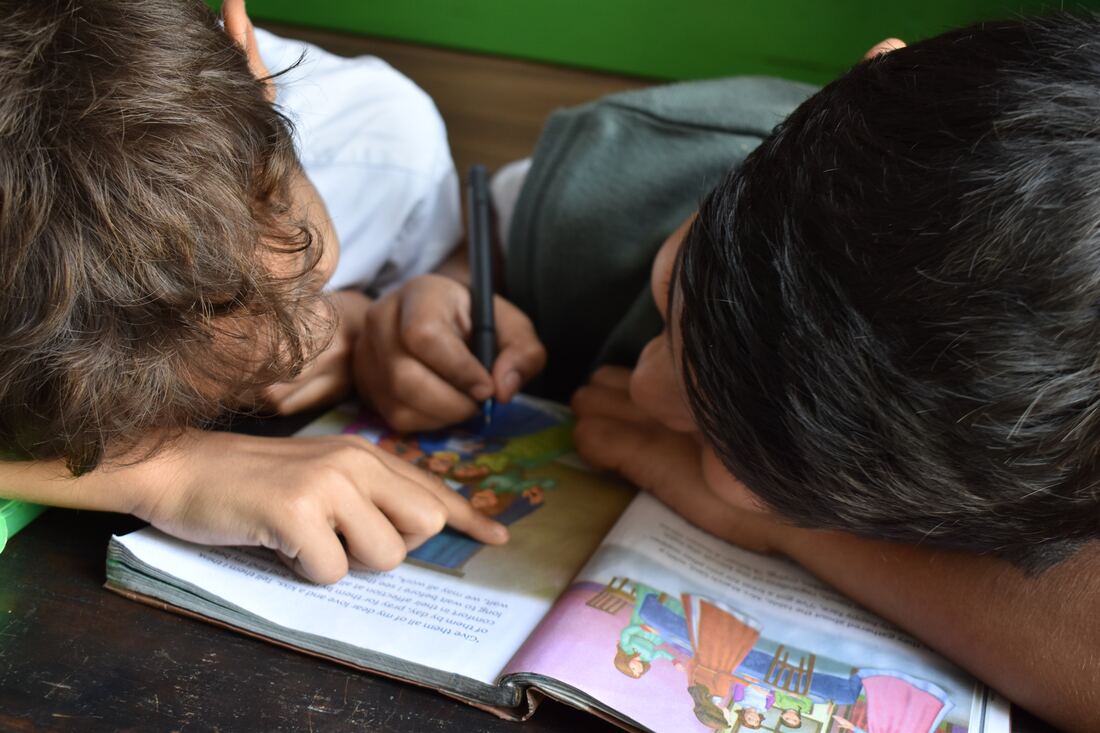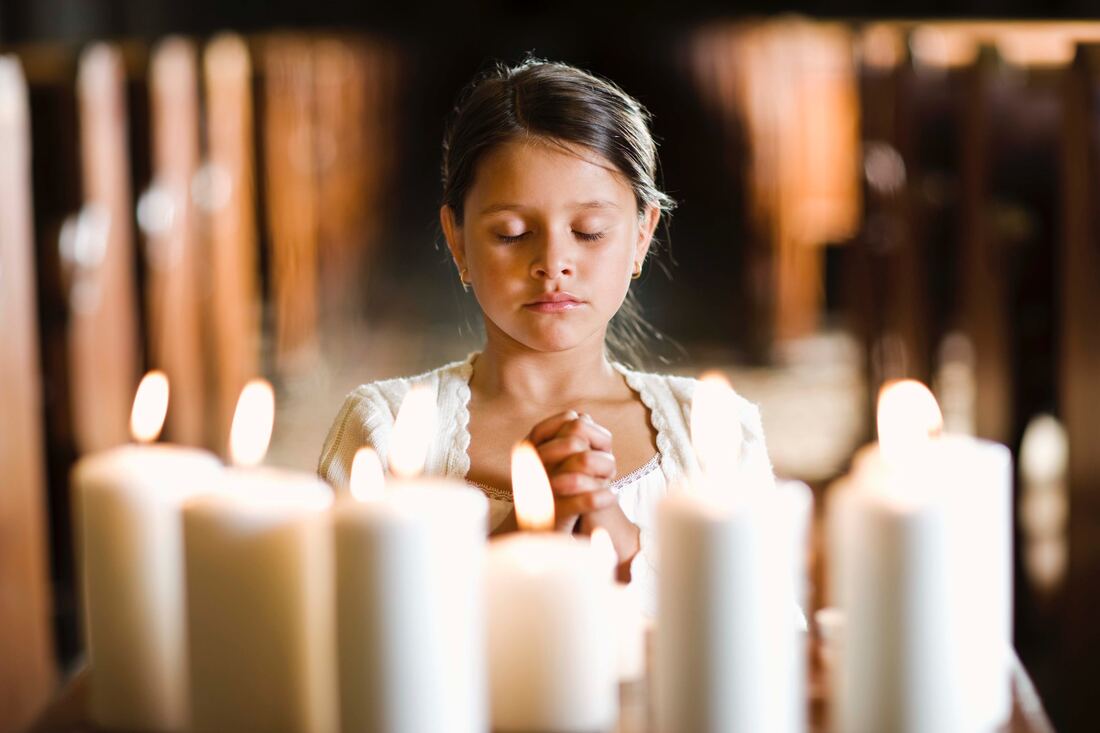Sacramental Preparation - One Size Doesn't Fit All
By Mary Anne Baillie
Part of the rhythm of parish life, like the movement through the liturgical seasons, is the parish sacramental program that culminates in the celebration of Confirmation, First Communion and First Reconciliation for children of the parish community. What is not so evident is the partnership of family, school, catechist and parish that come together in this time of preparation.
We have probably all heard at some time that parents are the first teachers of their child. This is very true: it is in the family that the child first learns about God and their Catholic faith; it is in the family that the child sees Christian values lived out. However it was never meant to imply that parents are the only faith educators. As both a teacher in Catholic schools (now retired) and currently a catechist for our parish sacramental program, I have found the understanding of Patricia Malone and Maurice Ryan of the different roles played by parent, parish and school/catechist in a child’s faith development very helpful. Each has its own particular role; each is necessary.
In Evangelii Gaudium, Pope Francis speaks of personal accompaniment in processes of growth. The ‘art of accompaniment’, the pope says, teaches us to remove our sandals before the sacred ground of the other (Ex 3:5). The pace of this accompaniment must be steady and reassuring, reflecting our closeness and our compassionate gaze which also heals, liberates and encourages growth in the Christian life (EG 169). In reflecting on my ministry as a catechist in our parish sacramental preparation, I have come to understand my role as that of accompanying.
We have probably all heard at some time that parents are the first teachers of their child. This is very true: it is in the family that the child first learns about God and their Catholic faith; it is in the family that the child sees Christian values lived out. However it was never meant to imply that parents are the only faith educators. As both a teacher in Catholic schools (now retired) and currently a catechist for our parish sacramental program, I have found the understanding of Patricia Malone and Maurice Ryan of the different roles played by parent, parish and school/catechist in a child’s faith development very helpful. Each has its own particular role; each is necessary.
In Evangelii Gaudium, Pope Francis speaks of personal accompaniment in processes of growth. The ‘art of accompaniment’, the pope says, teaches us to remove our sandals before the sacred ground of the other (Ex 3:5). The pace of this accompaniment must be steady and reassuring, reflecting our closeness and our compassionate gaze which also heals, liberates and encourages growth in the Christian life (EG 169). In reflecting on my ministry as a catechist in our parish sacramental preparation, I have come to understand my role as that of accompanying.
From the many rich images and learnings that emerge from the Emmaus story (Lk 24:13-33), we can discern four movements in a catechetical process. On the road to Emmaus, the two disciples are discussing the events of recent days (their lived experience). A companion joins them on their journey and through his teaching and explanation of the scriptures, they come to understand what has happened (Scripture, doctrine, Church teaching). In the breaking of the bread, they recognise Jesus (Celebration). The disciples then go on to share this new understanding with others (Lived Response).
These four movements in the Emmaus story form a sound catechetical process. Whether applied to the teaching of religion in the classroom or parish sacramental preparation, this process recognises the centrality of the child’s lived experience. This is where their faith will be lived out. Through their growing knowledge and understanding of Scripture, doctrine and Church teaching, they can respond to the activity of God in their lives and in the whole of creation. They join with others as a school or parish community to celebrate the mystery of the Risen Christ. These four movements are not sequential lock-step stages but an interconnected process, each movement enriching every other movement.
Our parish sacramental program acknowledges the role of parents as the first teachers of their children. At the same time, it recognises the importance of not leaving parents unsupported in their role as faith educators of their child. A parent or guardian attends each parish session with the child. Then parents and children work in small groups of six or eight families with each group facilitated by a catechist.
The other important component of the sacramental program is the teaching material that will be used. It must be child-centred and use child-appropriate language; it must be attractively presented. The theological concepts, Church teaching/doctrine and Scripture relating to the sacrament are also important, as are the liturgical celebration of the sacrament and its key symbols. Essential too are opportunities for the children to make sense of these teachings and understandings in the light of their life experiences. They will reflect on how they can apply these insights to their lives as they grow in faith to become more like Christ.
We know from the story of the twelve-year-old Jesus lost and found in the temple that he went home with his parents, Joseph and Mary, and continued to grow in wisdom and understanding. We trust that the children of our parish will also continue to grow in their understanding and appreciation of the sacraments. They do not need to know everything at the time of their sacramental preparation.
Canadian publisher Novalis has a variety of resources for sacramental preparation. For first Communion and Reconciliation, our parish has chosen to use the series On Our Way with Jesus (We Prepare for Reconciliation and We Share in the Eucharist). These programs see the role of the catechist as one of working and walking with parents and their children as important guides and mentors in preparing children for the reception of the sacraments of reconciliation and initiation. This series allows the catechist to respect the role of the parents as first educators of their children, but also to support them in this role by providing, when necessary, some direct formal teaching or clarifying some understandings. I find I am able to model for parents the appropriate Church language; I am a link between home and parish.
We know from the story of the twelve-year-old Jesus lost and found in the temple that he went home with his parents, Joseph and Mary, and continued to grow in wisdom and understanding. We trust that the children of our parish will also continue to grow in their understanding and appreciation of the sacraments. They do not need to know everything at the time of their sacramental preparation.
Canadian publisher Novalis has a variety of resources for sacramental preparation. For first Communion and Reconciliation, our parish has chosen to use the series On Our Way with Jesus (We Prepare for Reconciliation and We Share in the Eucharist). These programs see the role of the catechist as one of working and walking with parents and their children as important guides and mentors in preparing children for the reception of the sacraments of reconciliation and initiation. This series allows the catechist to respect the role of the parents as first educators of their children, but also to support them in this role by providing, when necessary, some direct formal teaching or clarifying some understandings. I find I am able to model for parents the appropriate Church language; I am a link between home and parish.
The student books are colourful with contemporary illustrations and photos throughout and therefore appealing to the children. The content is set out in a way that is not overwhelming. The books are thought-provoking. Colourful side bars present short teachings from the bible and from the liturgy, words to remember and ideas adapted from the Catechism of the Catholic Church; they present something to think about.
There are six sessions in We Share in the Eucharist and five in We Prepare for Reconciliation. Each session builds on the previous one, leading to a comprehensive understanding of the sacraments. We Share in the Eucharist introduces an understanding of Sunday as the day the parish community celebrates and remembers the risen Christ and receives his gift to us of his body and blood. The following five sessions take the children through the different parts of the Mass. In We Prepare for Reconciliation the focus is on a loving, forgiving God who offers Life, Love, Joy, Peace and Forgiveness. So before the concept of sin is introduced, the children know God as compassionate and loving.
There are six sessions in We Share in the Eucharist and five in We Prepare for Reconciliation. Each session builds on the previous one, leading to a comprehensive understanding of the sacraments. We Share in the Eucharist introduces an understanding of Sunday as the day the parish community celebrates and remembers the risen Christ and receives his gift to us of his body and blood. The following five sessions take the children through the different parts of the Mass. In We Prepare for Reconciliation the focus is on a loving, forgiving God who offers Life, Love, Joy, Peace and Forgiveness. So before the concept of sin is introduced, the children know God as compassionate and loving.
Woven into each session is relevant theological or liturgical knowledge in simple language that at the same time maintains the integrity of the teaching.
Within each session, there are structured activities with opportunities for the child
- to reflect upon a life experience that relates to the topic,
- to interact with Jesus’ stories retold for children, showing how God wants us to live our lives,
- to be challenged (for example, by moral dilemmas) to find ways to apply the new understandings in their lives.
The preparation for the sacraments of culminates in the celebration of the sacraments in the parish church. The four movements of the Emmaus story (Life Experience, Scripture/Doctrine/Church Teaching, Lived Response, Celebration) are evident. The program prepares the children well for the reception of the sacraments. At the same time, there are opportunities for them to grow in their faith and come to a deeper understanding of what it means to accept and follow Christ in their lives.
Within each children’s book is a lift-out Family Guide for parents with suggestions on how to support their child throughout the time of preparation. There is also prayer leaflet that has a morning and evening prayer for each theme. The Leader’s Guide has a reduced-size replica of the children’s resource on the top half of the page with a guide for the catechist in the lower half. This sets out the focus and the goal of each section as well as guidelines for working through the session. In fact, the series On Our Way with Jesus requires little direct teaching. At times I will talk directly to the parents. For example, at the beginning of the sessions on reconciliation I might explain the different names for the sacrament: Penance, Reconciliation, Confession. This gives the parents the opportunity to reflect on what they themselves were taught and to ask questions. At other times, it might be short direct teaching to the children to ensure they understand a concept – what sin is, what it means to be reconciled.
My main focus is facilitating the interaction of parents and child as they work through each activity together.
The programs cater well for this. A New Testament passage, a story of the saints, a reflection on life experiences, a moral dilemma are all designed to provide for conversation between parents and child. It is a non-threatening environment because no one has to give an answer to the whole group; the children are sharing their answer or explanation with their parents. While I introduce each section, it is a parent or child who reads the material and the parents who then initiate the discussion. While both written and oral responses are sought, the emphasis is not so much on producing a right answer but on the sharing of faith in a conversation between the child and parents. I am free to circulate and talk with each family as necessary. Each session in the student’s books concludes with What Have You Learned? There are one or two short written exercises to be completed and a Words to Remember section with one or two important learnings.
Being a catechist is a position of privilege and trust. I try to heed Pope Francis’ instruction to remove my sandals before the sacred ground of the other. For a short time, I am invited to be part of each family’s faith journey. We trust the work of the Spirit. Whatever their own faith, these parents, who once presented their child for baptism, now wish to continue that faith journey, to bring their child to become a fully initiated member of the church. They want their child to experience God in their lives and the Spirit is truly there in our midst. For the parish community the sacramental program is a time of joy and hope. Each of us, pastor, catechist, parishioner in our own way have removed our sandals to stand on the sacred ground of our parish families.
The programs cater well for this. A New Testament passage, a story of the saints, a reflection on life experiences, a moral dilemma are all designed to provide for conversation between parents and child. It is a non-threatening environment because no one has to give an answer to the whole group; the children are sharing their answer or explanation with their parents. While I introduce each section, it is a parent or child who reads the material and the parents who then initiate the discussion. While both written and oral responses are sought, the emphasis is not so much on producing a right answer but on the sharing of faith in a conversation between the child and parents. I am free to circulate and talk with each family as necessary. Each session in the student’s books concludes with What Have You Learned? There are one or two short written exercises to be completed and a Words to Remember section with one or two important learnings.
Being a catechist is a position of privilege and trust. I try to heed Pope Francis’ instruction to remove my sandals before the sacred ground of the other. For a short time, I am invited to be part of each family’s faith journey. We trust the work of the Spirit. Whatever their own faith, these parents, who once presented their child for baptism, now wish to continue that faith journey, to bring their child to become a fully initiated member of the church. They want their child to experience God in their lives and the Spirit is truly there in our midst. For the parish community the sacramental program is a time of joy and hope. Each of us, pastor, catechist, parishioner in our own way have removed our sandals to stand on the sacred ground of our parish families.
Mary Anne Baillie, a retired teacher and APRE, coordinates the sacramental program at St Patrick’s parish in Mackay, Queensland.
Originally published in Liturgy News, Vol 51/1, Autumn 2021
Images from Unsplash and Pixabay. Used under license/with permission.
Originally published in Liturgy News, Vol 51/1, Autumn 2021
Images from Unsplash and Pixabay. Used under license/with permission.





